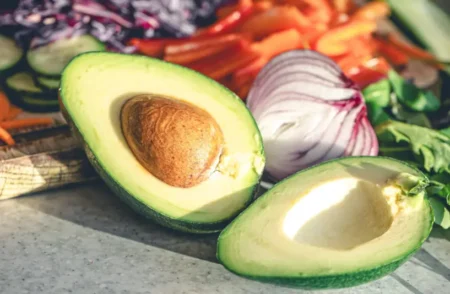 Avocados have exploded in popularity over the past two decades. From toast toppings to smoothie ingredients, this once-exotic fruit now holds a steady spot in millions of American kitchens. But is it just hype — or is there real value behind the green obsession?
Avocados have exploded in popularity over the past two decades. From toast toppings to smoothie ingredients, this once-exotic fruit now holds a steady spot in millions of American kitchens. But is it just hype — or is there real value behind the green obsession?
Turns out, avocados aren’t just trendy. There’s solid nutritional science supporting their benefits — and good reasons they’ve become a staple in modern diets.
Nutrient-Dense Without the Drama
One of the reasons nutrition experts often praise avocados is because they deliver a powerful mix of nutrients without excess sugar or processed content. A medium avocado contains:
- Nearly 20 vitamins and minerals, including potassium, folate, and vitamin E
- Around 10 grams of fiber
- Heart-healthy monounsaturated fats
That combination makes avocados highly satiating — meaning they keep you full longer, support blood sugar stability, and promote better digestion.
Monounsaturated fats, in particular, have been linked in multiple studies to improved cardiovascular health and reduced LDL (“bad”) cholesterol. That’s part of why avocados are often recommended in Mediterranean-style diets and heart-healthy eating plans.
Brain and Mood Support
Healthy fats aren’t just good for the heart. They also support brain function and emotional well-being. Avocados contain oleic acid, a fat that plays a role in building and repairing brain cell membranes.
They’re also a good source of vitamin B6, which is involved in producing neurotransmitters like serotonin and dopamine. While no food is a cure for mood disorders, a nutrient-rich diet that includes avocado may support more balanced mental energy throughout the day.
Gut Health and Fiber
Avocados are surprisingly high in fiber — more than many fruits — and that’s good news for your gut. A diet rich in fiber supports the growth of beneficial gut bacteria, improves regularity, and helps reduce inflammation over time.
A clinical trial published in The Journal of Nutrition found that daily avocado consumption was associated with a more diverse gut microbiome and improved digestive function in overweight adults. The fiber and plant compounds in avocados appear to support a healthier balance in the gut, which may impact everything from immunity to weight regulation.
Why It’s Culturally Everywhere
The popularity of avocados isn’t just based on their health benefits. It’s also about versatility. Their neutral flavor, creamy texture, and ability to pair with both savory and sweet foods make them easy to integrate into modern meals.
Social media played a role, too — avocado toast became a symbol of clean eating, minimalist cooking, and a certain kind of aspirational wellness lifestyle. But beyond the aesthetics, their rise also reflects a broader shift toward whole, unprocessed foods with natural fats and complex nutrients.
Final Thought
Avocados aren’t a miracle food — no single ingredient is. But they offer a rare mix of taste, texture, and nutritional value that makes them worth keeping around. Backed by real science and supported by evolving eating habits, their popularity isn’t just a trend — it’s a shift in how we think about food and health.
Whether you mash them on toast, slice them in salads, or blend them into smoothies, you’re not just following a fad. You’re feeding your body something it genuinely knows what to do with.
Picture Credit: Freepik
